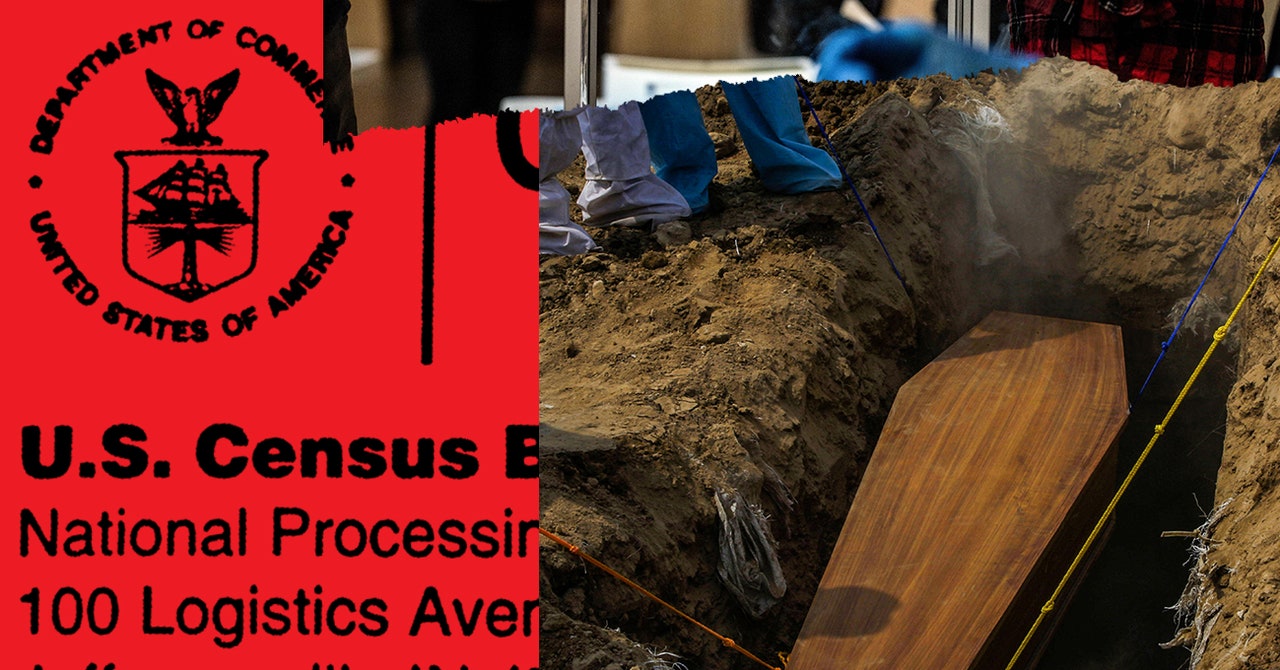“There’s nothing from the CDC that I can trust,” snapped US coronavirus task-force leader Deborah Birx at a White House meeting earlier this month. According to news reports, Birx was frustrated at the agency’s tally of coronavirus deaths, as she and colleagues worried that reported numbers were up to 25 percent too high. However, if some people inside the Beltway think the counts are inflated, others think they’re too low—and the seemingly simple task of tabulating bodies has become an intensely political act.
It’s a bizarre situation, because in some sense, there’s nothing more inherently impartial than a tally of objects. This is why the act of counting is the gateway from our subjective, messy world of confused half-truths into the objective, Platonic realm of indisputable facts and natural laws. Science almost always begins with counting, with figuring out how to measure or tabulate something in a consistent, reproducible way. Yet even that very first rung on the ladder to scientific understanding is slippery when the act of counting gets entangled with money or power.
The arguments over the number of Covid-19 victims are just the latest battles in a political war over counting—a war that’s several decades old and has been waged on several fronts. Even under normal circumstances, 2020 would have seen some major fighting over counting: of votes in the presidential election and of citizens in the US Census. The pandemic adds a third high-stakes tally with profound political repercussions. As it happens, all three counts present parallel questions that Democrats and Republicans attempt to answer in diametrically opposite ways. And, at this point, it is far from clear which side will prevail.
Counting is harder than it looks, especially when it comes to the sorts of tabulations that determine whether powerful people get to maintain their power. Like voting. With rare exceptions, there’s no controversy about how to count a given vote; once a ballot has been inserted in the ballot box, it’s pretty obvious how it should be tallied. Instead, the fights tend to be over whose votes get counted and whose don’t.
In the past few years, the Republican Party has been pushing for anti-voter-fraud measures, such as purging voter rolls and tightening identification requirements to cast a ballot. Democrats, on the other hand, have been trying to broaden the voting base, making absentee ballots more widely available and attempting to restore voting rights of ex-felons. This isn’t a coincidence. These schemes to restrict or expand the franchise will hurt or help voters who face the greatest barriers to voting: poorer citizens; minorities; non-native-English speakers; those who have the least success with (and least inclination toward) engaging with their local governmental agencies. These voters tend to lean Democratic, so erecting barriers to voting disproportionately hurts Democrats, while removing impediments helps them.
Read all of our coronavirus coverage here.
Even a tally as seemingly straightforward as the decennial Census—a Constitutional obligation to count every head in the United States—has been subject to political skirmishes over the past several decades. The central issue in these fights, such as the latest one over whether or not to include a question about immigration status, also tends to involve the question of counting minorities, non-native English speakers, immigrants, and people in the lower income brackets.
Unlike a vote, which is a purely political creation, a Census is an attempt to measure a property of the natural world: how many humans resid

